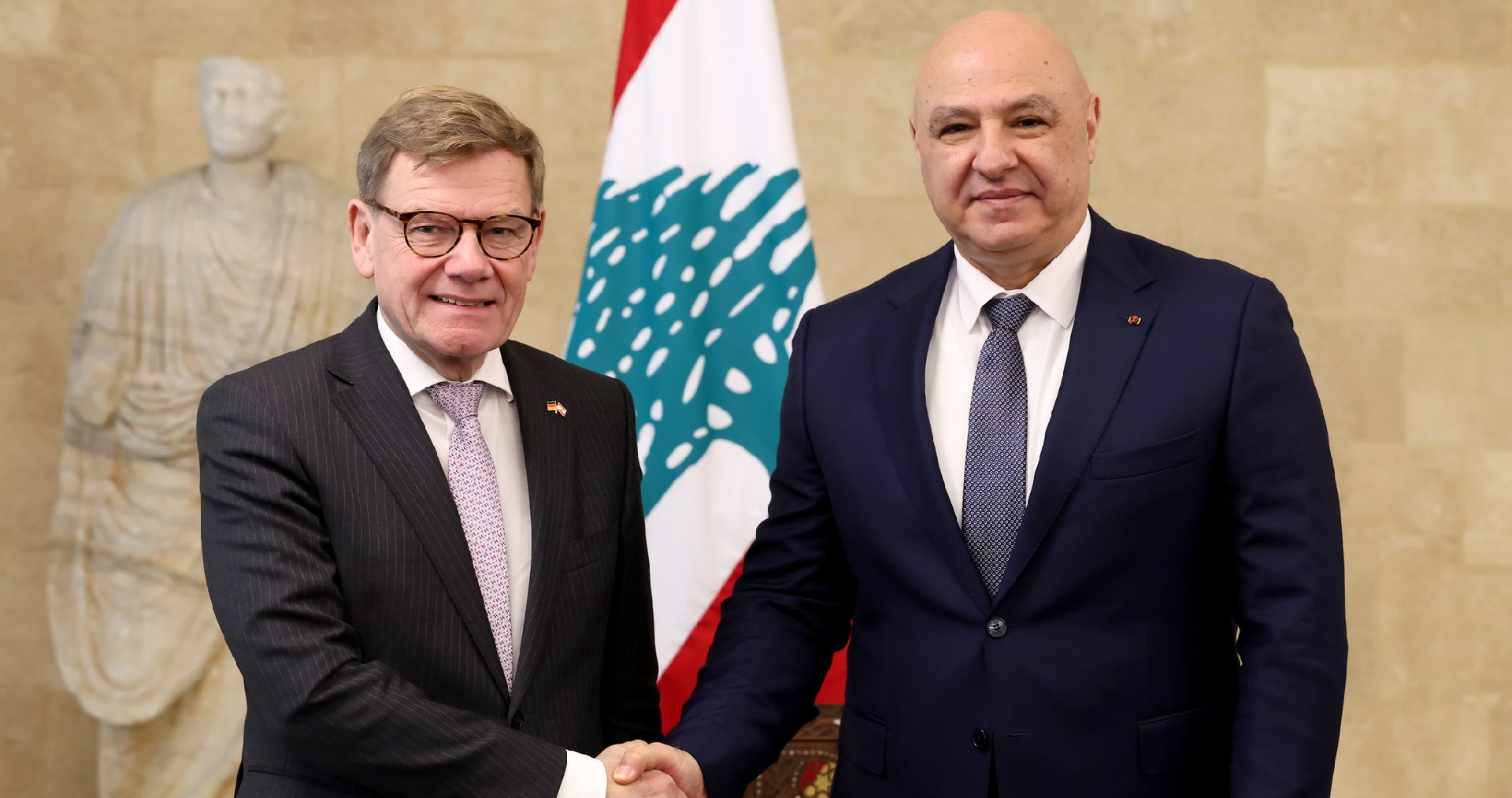
President Joseph Aoun reaffirmed on Friday that the Lebanese Army (LAF) remains “the only guarantee for protecting Lebanon’s sovereignty and ensuring its defense,” stressing that “there can be no sustainable security without it.”
During a meeting at Baabda Palace with German Foreign Minister Johann Wadephul, Aoun said “Lebanon is ready to engage in negotiations to end the Israeli occupation” but emphasized that “no negotiation can be one-sided; it requires mutual will, which is not yet available.” He added that the form, timing, and venue of any talks “will be determined later.”
The president urged Wadephul to encourage the international community, the European Union, and the United States to press Israel to abide by the ceasefire agreement announced last November. This, he said, would allow the Lebanese Army to deploy up to the southern international border and complete plans to extend Lebanon’s sovereignty over all its territory.
“We are not advocates of war, we have experienced wars and learned their lessons,” Aoun said. “That is why we seek to restore stability to Lebanon, starting from the south.” He stressed that Lebanon’s choice of negotiation aims to recover occupied lands, secure the release of prisoners, and ensure full Israeli withdrawal from contested areas.
Aoun noted that the army is fully performing its duties south of the Litani River, while fulfilling its other national responsibilities, and welcomed any support to strengthen its capabilities. “The army’s presence in the south will increase to ten thousand soldiers before the end of the year,” he revealed, highlighting continued cooperation with UNIFIL.
The president condemned Israel’s repeated attacks, saying they “confirm that aggression remains its primary choice,” and called on the international community to support Lebanon’s efforts for peace and stability. He also commended the European Union’s stance in denouncing attacks on UNIFIL, which operates under international resolutions to maintain calm in southern Lebanon.
Earlier on Friday, Wadephul met with Foreign Minister Joe Raggi. The German minister warned that Lebanon’s failure to keep all weapons under state control would send “a negative signal” about its ability to maintain sovereignty. He praised Beirut’s commitment to consolidating all arms under state authority and reiterated Germany’s readiness to help extend government control across all Lebanese territory.
Wadephul described Lebanon as “the key to stability in the region” and condemned Israeli attacks on Lebanese soil as “unacceptable,” urging both Israel and Hezbollah to respect the cessation of hostilities.
The two ministers also discussed the Syrian refugee crisis. Wadephul reaffirmed Germany’s support for Lebanon’s position advocating the return of displaced Syrians to their homeland. Raggi, for his part, called for “concrete international action,” including financial support and incentives to encourage voluntary returns to Syria.
Raggi also urged Berlin to help press Israel to “halt its attacks and withdraw from occupied Lebanese territories”, stressing that “a diplomatic, not military, solution is the only path to stability.” He reiterated Lebanon’s commitment to confining all weapons to state institutions through gradual steps, calling the Lebanese Army “the key entry point for reconstruction, economic recovery, and prosperity.”
Both sides also discussed the future of peacekeeping operations in southern Lebanon and explored potential frameworks to ensure continuity in maintaining stability after the end of the UNIFIL mandate.



Comments